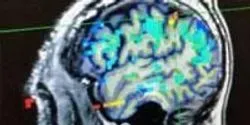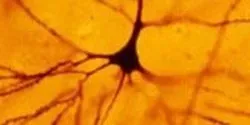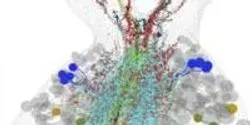Neuroscience

Neural prosthetic devices implanted in the brain's movement center, the motor cortex, can allow patients with amputations or paralysis to control the movement of a robotic limb—one that can be either connected to or separate from the patient's own limb. However, current neuroprosthetics produce motion that is delayed and jerky—not the smooth and seemingly automatic gestures associated with natural movement. Now, by implanting neuroprosthetics in a part of the brain that controls not the movement directly but rather our intent to move, Caltech researchers have developed a way to produce more natural and fluid motions.

Scientists at McMaster University have discovered how to make adult sensory neurons from human patients simply by having them roll up their sleeve and providing a blood sample.

A fruit fly starts buzzing around food at a picnic, so you wave your hand over the insect and shoo it away. But when the insect flees the scene, is it doing so because it is actually afraid? Using fruit flies to study the basic components of emotion, a new Caltech study reports that a fly's response to a shadowy overhead stimulus might be analogous to a negative emotional state such as fear—a finding that could one day help us understand the neural circuitry involved in human emotion.

Chewing, breathing, and other regular bodily functions that we undertake “without thinking” actually do require the involvement of our brain, but the question of how the brain programs such regular functions intrigues scientists. A team lead by Arlette Kolta, a professor at the University of Montreal's Faculty of Dentistry, has shown that astrocytes play a key role.

With Apple's launch of new health tracking tools for the iPhone and medical researchers' forays into Facebook to recruit clinical trial volunteers, Web and mobile apps are increasingly seen as a new source for health data.

Scientists at The Scripps Research Institute (TSRI) have been awarded two grants to study brain mechanisms that actively suppress relapse associated with cocaine and alcohol addiction.

Florida Atlantic University, one of Florida’s leading public research universities, and the internationally renowned Nansen Neuroscience Network (NNN) in Norway, a premier network of organizations dedicated to research into neuroscience in Europe, have signed a memorandum of understanding for cooperative research and education in the areas of neuroscience and brain health.











